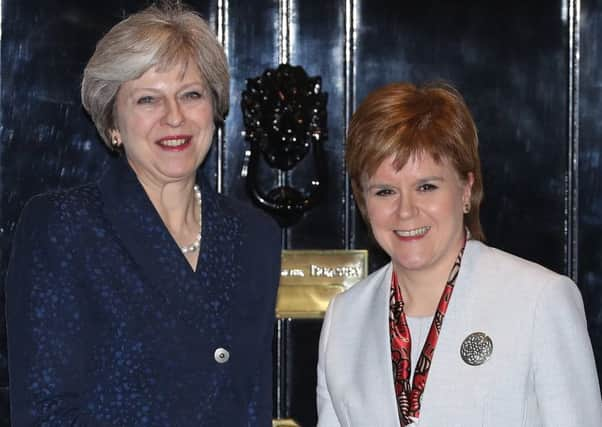Brexit: Why Sturgeon should stop talking about independence for once – Brian Wilson


There are all too many current political contexts within which the phrase “beggars belief” seems appropriate.
We must add to the collection Nicola Sturgeon’s appearance in Downing Street this week when she chose to talk about a second Scottish independence referendum. Surely, even she might consider the possibility that there is a time and place for everything – and this wasn’t it.
Advertisement
Hide AdAdvertisement
Hide AdBrexit is an awful mess and criticism of those who have presided over it is amply justified. But it is hardly worth the fare to London simply to re-state that, far less to address the media on a quite separate objective.
There is a majority in the House of Commons against “no deal” but, whether delayed or not, it will also need unity around something more positive. That is the area of compromise on which discussion must focus and within which Scottish interests could be advanced. Why is that not happening?
The answer may lie in the contradiction between the SNP’s proclaimed hostility to a “no deal” Brexit and their reliance on the messiest possible outcome to maximize the clamour for another independence vote, which is of far more interest to them. Ms Sturgeon’s performance did nothing to ease that suspicion.
This week, the CBI put the potential annual cost to Scotland of a “no deal” Brexit at £14 billion, which is more than it costs to run the devolved NHS. Sectors of the Scottish economy like farming and food are, they said, particularly vulnerable to “no deal”.
So Brexit is about real jobs, real people, real communities. It is neither an abstraction nor a game. The priority for any Scottish First Minister, regardless of political allegiance or any other issue, must be to avoid a “no deal” exit and that involves more than just saying how awful it would be.
It must mean constructive negotiation, practical proposals and – ultimately – compromise. Where did a second independence referendum enter into any of that? Why was her Downing Street cameo reduced to another piece of irrelevant grandstanding? Whatever one’s view on a second independence referendum, it is not going to happen before 29 March and therefore has no place in current discussions.
Ms Sturgeon’s sound-bite was to accuse the Prime Minister of “running scared”. Was this juvenile jibe really the best that she could muster? Is there absolutely nothing constructive or creative she could advance that might help break the Brexit deadlock and benefit Scotland at the same time?
The only case for a second independence referendum any time soon was summed up by Alex Salmond in his interview last weekend. “Westminster’s difficulty is Scotland’s opportunity,” he declared, borrowing heavily from Irish precedent. That, in a nutshell, is what Ms Sturgeon is up to.
Advertisement
Hide AdAdvertisement
Hide AdHer own cheer-leaders may applaud but more rational minds expect their politicians to make the best of the world as it is rather than manoeuvre for an entirely different objective at the expense of immediate priorities, especially when these are as monumental as at present.
Ms Sturgeon switches talk of a second referendum on and off to suit her own convenience. There is not the slightest indication that a majority within Scotland want it nor that opinion on the substantive question has moved since 2014.
Nonetheless, if there is a pro-referendum majority after the next Holyrood elections, another referendum will be wearily inevitable and, if she is that keen, it is within Ms Sturgeon’s gift to bring that date forward. Let me explain.
In 2015, Holyrood legislated to extend its current term from four to five years, to avoid a clash with a UK General Election in 2020. That rationale disappeared the moment Mrs May called a General Election in 2017 yet Holyrood is still scheduled to run for five years.
This has been noted by the Labour peer, George Foulkes, who has introduced a Bill to highlight the issue. However, MSPs could themselves vote to reinstate a 2020 election. Surely that is a test which Ms Sturgeon should welcome – and give us all peace about a second referendum in the meantime.
